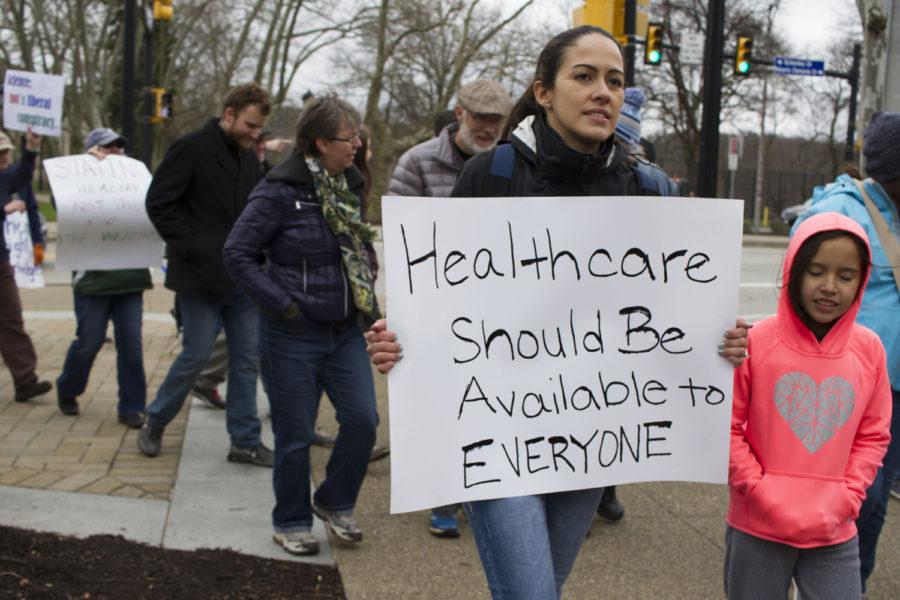Policy changes stalling have been a hallmark of President Donald Trump’s first several months in office. But for a politician who’s promised health “insurance for everybody,” Trump should find the events of the past two weeks an especially striking reversal.
The Children’s Health Insurance Program — a federal project designed to provide health care coverage for children of families with low incomes that are still too high to qualify for Medicaid — has received widespread praise for its effectiveness. Originally created in 1997 with bipartisan sponsorship from both Senate Democrats and Republicans, the program was reauthorized and expanded under both Presidents George W. Bush and Barack Obama. If Trump truly cares about improving health care coverage, CHIP should be an easy first step.
But when the question of continued funding for CHIP rose once again late last month, Congressional Republicans, who control both the House of Representatives and the Senate, chose to focus discussion on their plans to change the tax code. And in the absence of any action, the program ran out of funding at the end of September.
Trump hasn’t shied away from the health care debate since CHIP lost its funding, however. On the contrary, the president signed two executive orders in the past week bringing major changes to how the federal government administers one of the most prominent health laws in the country — the Affordable Care Act, also called Obamacare.
One order cancelled subsidies to health insurance companies providing coverage to low income recipients. Another removed requirements that employer-provided health coverage include access to contraceptives. But neither addressed the immediate emergency that an end or even a temporary interruption to funding for CHIP entails — health care coverage for children scaled back or lost entirely.
According to CHIP’s website for Pennsylvania, nearly 177,000 children under the age of 19 are enrolled in the program in the state. And while the program can continue until February in the continued absence of federal funding, Pennsylvania Secretary of Human Services Teresa Miller told the Pittsburgh Post-Gazette that the state is banking on a CHIP reauthorization by then.
If Pennsylvania doesn’t receive federal funding to continue the program by February, it’s likely the state will have to roll back health insurance coverage for Pennsylvania children. And other states might have it even worse — in West Virginia, a permanent loss of funding from the federal government could lead to outright elimination of the program.
There shouldn’t be political disagreement around continued funding for CHIP. The program’s benefits are clear — nationwide, the uninsured rate for children dipped below five percent for the first time last year. And the program continues to enjoy at least nominal support from prominent Republicans, including Sens. Chuck Grassley, R-Iowa, and Shelley Moore Capito, R-W.Va., as well as Democrats.
Seemingly everything Trump has said in the past on the topic of health care points toward an obvious choice for the president — push for renewed funding for CHIP to easily improve health care coverage figures. If he fails to do so, we’ll know his real priorities lie elsewhere.


